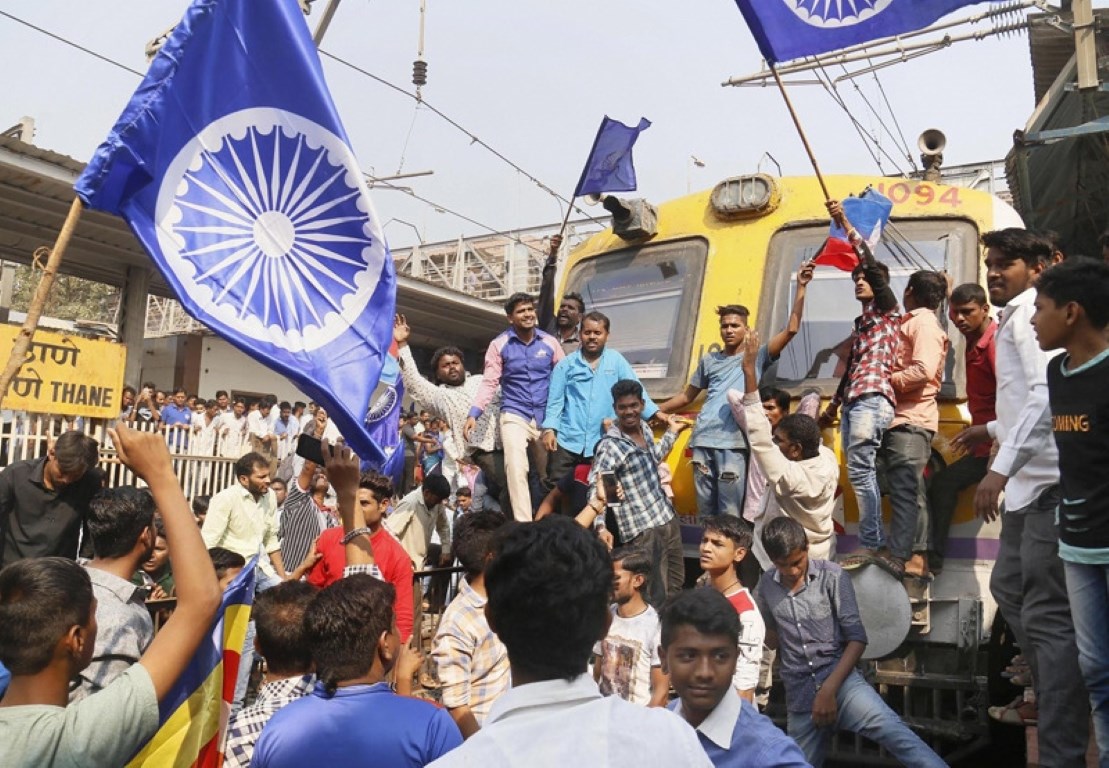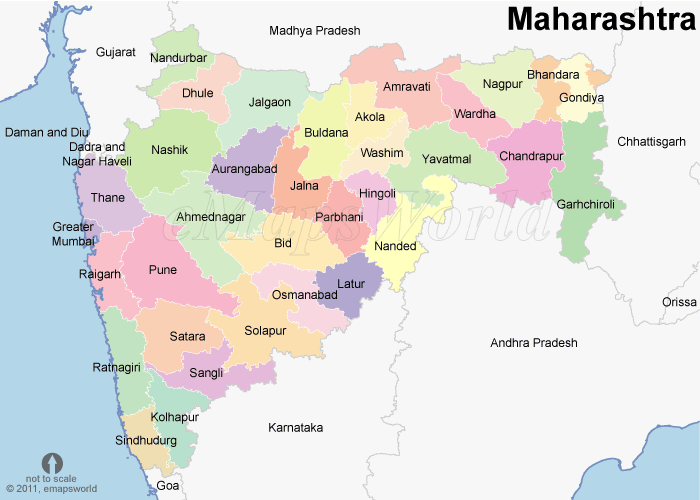Clashes over caste system
January 5, 2018 | Expert Insights

The 200th anniversary of a British military victory in India has resulted in violent clashes across the state of Maharashtra, particularly in the city of Mumbai.
The clashes have once again brought the issue of casteism to the fore of the national conversations in India.
Background
The Battle of Koregaon refers to the battle that was fought between the British East India Company and the Peshwa faction of the Maratha Confederacy in the region. The battle was reportedly fought on January 1st, 1818. A 28,000-strong force led by Peshwa Baji Rao II whilst on their way to attack the company-held Pune, were unexpectedly met by an 800-strong Company force that was on its way to reinforce the British troops in Pune. The Peshwa dispatched around 2,000 soldiers to attack the force which sought entrenchment in Koregaon. Led by Captain Francis Staunton, the Company troops defended their position for nearly 12 hours before the Peshwa's troops ultimately withdrew, fearing the imminent arrival of a larger British force. Neither side achieved a decisive victory in the battle. Notwithstanding this, the battle being one of the last ones to be fought in the Third Anglo-Maratha War, has since came to be remembered as a Company victory after the war ended with Peshwa's defeat.
The battle holds significance with the Mahar community. 22 of the 49 company soldiers who died during the battle had names ending with the suffix -nac (or -nak). This suffix is used exclusively by the people of Mahar caste. The Mahars were considered untouchable in the contemporary caste-based society. The Peshwas, who were high-caste Brahmins, were notorious for their mistreatment and persecution of the untouchables. Due to this, Dalits (former untouchables), have come to view the Koregaon obelisk as a symbol of their victory over the high-caste oppression. B. R. Ambedkar, one of the champions of the Dalit empowerment, visited the site on 1 January 1927.
Untouchability
Untouchability is the practice of ostracizing a group by segregating them from the mainstream by social custom or legal mandate. The term is commonly associated with treatment of the Dalit communities. Untouchability has been made illegal in post-independence India. Reports have emerged of continued practices of untouchability in part of India even today.

Analysis
On January 1st, an event was organized to mark the 200th year anniversary of the battle, in which forces of the East India Company defeated the Peshwa’s army. The event resulted in clashes between members of the right-wing Hindu parties and members of the Dalit caste were celebrating the victory of Koregaoun. 2018 Dalit protests in Maharashtra are over violence in Pune in which a Dalit youth was killed over the Battle of Koregaon anniversary. A Dalit youth was killed in the ensuing violence. The event had reportedly been attended by 300,000 Dalits.
“Stone-pelting started after the argument. During the violence, some vehicles and a house in the vicinity were damaged,” a police officer deployed for security at Bhima Koregaon said without elaborating.
On 2nd January, protests were staged all around Maharashtra. Many trains were affected. 40,000 schools were shut down. Dabbawalas stopped their tiffin supplies. Nearby Gujarat state was also affected. In Dhoraji, Gujarat state transport bus was burnt. Clashes broke out between Bhim Sainiks and Hindutva activists in some districts of the State during the bandh. On Wednesday, Dalit organizations calls for a bandh across the state of Maharashtra.
Union Minister Ram Vilas Paswan has called for a time-bound inquiry into the caste violence. He said, “Judicial inquiry should be conducted in a time-bound manner. Some people are saying that it was due to administrative lapses while others are accusing some people behind the violence. Whosoever are guilty, strict action should be taken against them.”
Congress leader Mallikarjun Kharge alleged that it was the right-wing Hindu groups that triggered much of the violence. “Why is Prime Minister Narendra Modi silent on the issue? He always maintaince silence on issues relating to Dalits. He has become a ‘Mouni Baba’on Dalit issues,” he said.
In Mumbai alone 16 FIRs have been registered and 300 people have been arrested as a result of the violence and the protests. As a result of the bandh, businesses also reportedly lost close to Rs 3,000 crores and loss of property ranged from Rs 700 to Rs 1,000 crores.
The Maharashtra chief minister, Devendra Fadnavis, has asked for a judicial inquiry into Monday’s violence.
Assessment
Our assessment is that any analysis of the violence is incomplete without introspection of casteism that is still prevalent in the Indian society. It is also imperative for political parties to not cause further division between the people by playing up caste politics.








Comments